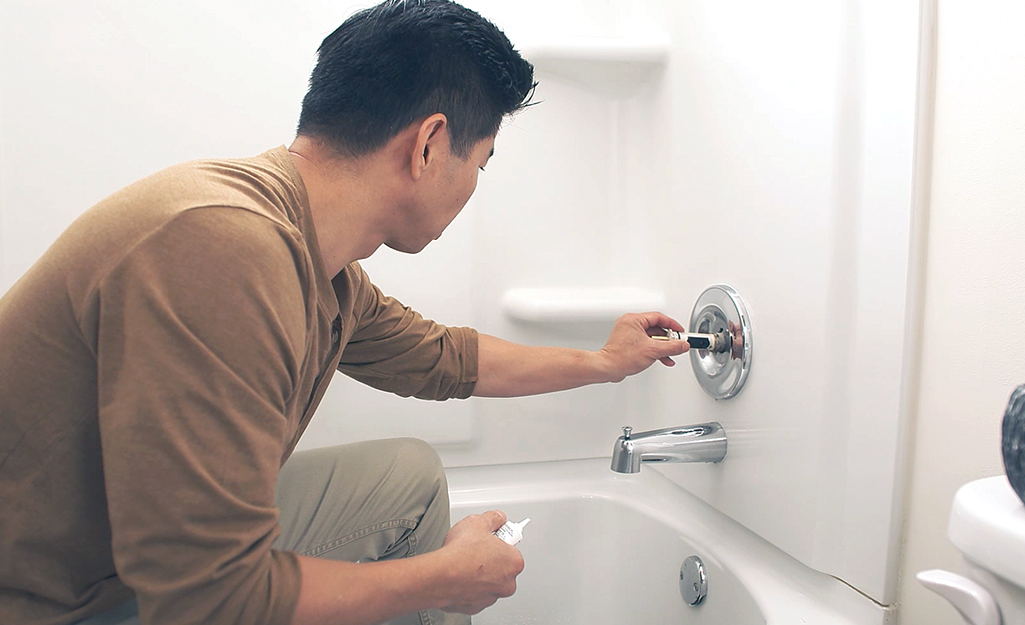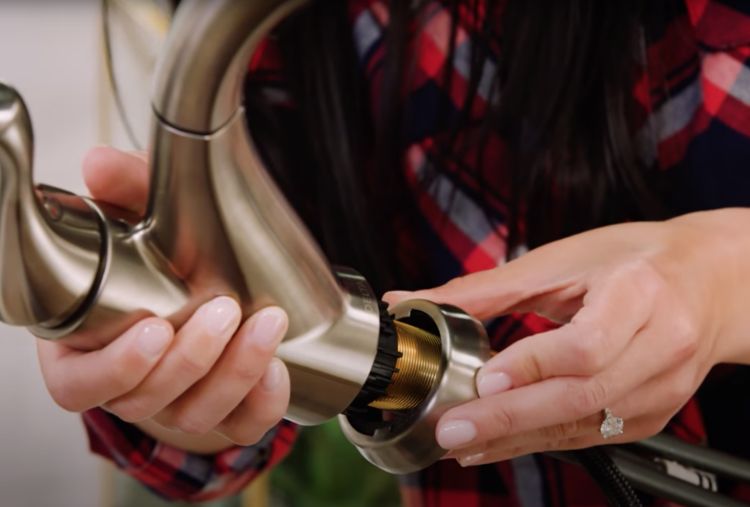How It's Crucial to Repair a Malfunctioning Faucet
How It's Crucial to Repair a Malfunctioning Faucet
Blog Article
We have found this article involving Leaky Faucets: Why They Happen & What to Do About Them down the page on the internet and felt it made perfect sense to share it with you in this article.

Leaking faucets may feel like a minor trouble, yet their effect exceeds simply the aggravation of the noise. From drainage to incurring unneeded financial costs and health and wellness risks, neglecting a leaking tap can lead to different repercussions. In this write-up, we'll explore why it's vital to resolve this usual home concern immediately and efficiently.
Wastage of Water
Environmental Influence
Leaking taps add substantially to water waste. According to the Environmental Protection Agency (EPA), a solitary tap dripping at one drip per second can waste more than 3,000 gallons of water annually. This not just strains water sources yet also affects ecosystems and wildlife depending on them.
Step-by-Step Overview to Dealing With a Dripping Faucet
Tools Required
Before trying to fix a dripping tap, gather the needed devices, including a flexible wrench, screwdrivers, substitute components (such as washers or cartridges), and plumber's tape.
Usual Tap Issues and Their Solutions
Recognize the kind of faucet and the particular issue creating the drip. Typical troubles include damaged washers, corroded shutoff seats, or malfunctioning O-rings. Refer to maker instructions or online tutorials for detailed assistance on repair services.
Financial Expenses
Raised Water Expenses
Past the ecological influence, leaking taps can pump up water costs significantly. The accumulated wastefulness over time translates right into greater energy costs, which could have been stayed clear of with prompt repair work.
Prospective Home Damage
In addition, extended dripping can result in harm to components and surface areas surrounding the faucet. Water buildup can trigger staining, deterioration, and also architectural problems if left unattended, resulting in additional repair service expenses.
Wellness Worries
Mold And Mildew and Mildew Development
The continuous visibility of dampness from a trickling faucet produces a perfect atmosphere for mold and mildew growth. These fungis not just compromise indoor air high quality however likewise present health risks, specifically for individuals with respiratory problems or allergic reactions.
Waterborne Diseases
Stationary water in dripping taps can become a breeding place for bacteria and various other pathogens, raising the risk of waterborne illness. Contaminants such as Legionella microorganisms flourish in stagnant water, potentially leading to severe ailments when ingested or breathed in.
DIY vs. Expert Repair work
Advantages and disadvantages of DIY Repair
While some might attempt to take care of a leaking tap themselves, DIY repair work come with their own set of difficulties. Without appropriate understanding and devices, DIY attempts can worsen the concern or result in incomplete repairs, prolonging the problem.
Benefits of Working With a Professional Plumber
Working with an expert plumber makes certain that the underlying source of the trickling tap is addressed efficiently. Plumbings possess the experience and devices to identify and fix tap concerns effectively, saving time and reducing the risk of additional damage.
Ecological Duty
Individual Payment to Preservation
Taking obligation for repairing trickling taps lines up with more comprehensive efforts toward water conservation and ecological sustainability. Every person's activities jointly make a considerable influence on protecting priceless resources.
Lasting Living Practices
By focusing on timely repair work and adopting water-saving behaviors, individuals add to sustainable living methods that benefit both present and future generations.
Preventive Measures
Normal Maintenance Tips
To prevent trickling taps, perform regular upkeep such as cleaning up aerators, checking for leaks, and changing worn-out parts without delay. Additionally, take into consideration setting up water-saving gadgets or updating to more effective components.
Importance of Prompt Repair Works
Resolving dripping taps as quickly as they're noticed stops additional water wastefulness and potential damages, inevitably conserving both water and money over time.
Impact on Home Value
Understanding of Well-Maintained Property
Keeping a home in good condition, consisting of resolving maintenance problems like dripping faucets, improves its viewed value and worth amongst prospective customers or occupants.
Impact on Resale Value
Residences with well-kept plumbing components, including taps, command greater resale worths in the real estate market. Dealing with leaking taps can add to a positive perception throughout building examinations and negotiations.
Conclusion
Resolving a dripping faucet surpasses plain benefit; it's a necessary step towards preserving water, lowering economic expenses, and securing health and building. Whether through do it yourself repair work or specialist aid, acting to deal with trickling taps is a little yet impactful way to advertise liable stewardship of resources and contribute to a much healthier, more lasting future.
How to Fix a Leaky Faucet: Step-by-Step Repair Guide
A leaky faucet may seem like a simple annoyance, but if it's not fixed promptly, that leak could cost hundreds to potentially thousands. From water damage to mold, mildew, and high water bills, even a tiny leak can be catastrophic if left unattended. Damage like this can even affect the overall value of your home, so it's important to take the right approach for leaky faucet repair. You may need the help of a plumber in some cases, but we've got a few tips you can try on how to fix a leaky faucet before calling the pros.
Four Faucet Types
When you're learning how to fix a leaky faucet, the first step is knowing what kind of faucet you're working with! There are four common types.
Cartridge Faucets
Cartridge faucets come in one- or two-handled varieties. In one-handled cartridge faucets, hot and cold water combines in a single cartridge. In the two-handled versions, hot and cold water are controlled separately and mixed in the faucet.
Ball Faucets
Ball faucets have a single lever you push up and down to adjust the pressure and rotate to change the temperature. A slotted metal ball controls the amount of water allowed into the spout.
Compression Washer Faucets
They're the oldest type of faucet, but they're still used in many homes — especially older ones. Compression faucets have two separate handles that, when turned, raise or lower the washer that seals a water valve. This valve stops water from flowing through the faucet when it is turned off.
Disc Faucets
Disc faucets rarely need to be repaired due to their maintenance-free design. The water flow is controlled by two discs — the upper one raises and lowers against a fixed lower disc, creating a watertight seal. If your disc faucet starts leaking, you may need to replace the seals or clean residue buildup from the inlets.
Fixing a Leaky Faucet
Step 1: Turn Off the Water
Whether you're learning how to fix a leaky bathtub faucet or how to fix a leaky kitchen faucet, always turn off the water supply to your working area when you're fixing a leak. The last thing you want is a flood added to your list of things to fix.
Look for the shutoff valves below your sink or around the tub and turn them clockwise to stop the water flow. If your faucet doesn't have shutoff valves, you may need to turn off the water for the whole house. Check to make sure it's off by turning the faucet on. If nothing comes out, you're ready to start the repair.
Step 2: Take Apart the Faucet
How you disassemble your faucet depends on the type of fixture you have. You can use a flathead screwdriver to remove the caps on top of the handle or handles for cartridge and compression faucets. Inside, you should see handle screws. Unscrew these with a screwdriver to remove the handle.
Disc- and ball-style faucets will typically have an inlet screw near the handle, and removing that will reveal the interior of the faucet.
Detach the Valve Stem
For cartridge- and compression-style faucets, you'll see the inner valve stem or cartridge once you remove the faucet handles. If you have a compression faucet, unscrew the brass valve stem. If you have a cartridge faucet, pull out the cartridge. If your cartridge has been in place for a while, it may require some tools or extra force to remove it due to mineral deposits.
Examine and Replace Parts
Once you've removed the parts, check them out to confirm what needs to be replaced. You may see corroded rubber washers, O-rings, stems, or cartridges. On a ball-style faucet, check the seats and springs for damage.
If you need to repair a leaky disc faucet, check the inlet and seals on the lower disc.
Once you determine what parts must be replaced, visit your local hardware store. Bring the damaged parts with you to ensure you can purchase the correct components to replace them.
Clean Valves and Faucet Cavity
If you've removed a stem or cartridge, you may notice mineral buildup in the faucet's threads. Use white vinegar to clean the valve seat by soaking it for a few minutes, then scrub it away with a soft toothbrush and rinse with warm water. You can also clean the interior of the faucet in the same way.
Reassemble the Faucet
Once your faucet is cleaned and the required parts have been replaced, it's time to reassemble it. Put the pieces back together and slowly turn the water supply back on. Doing this slowly is crucial because too much initial water pressure can damage the new hardware you've just installed.
https://homewarranty.firstam.com/blog/how-to-fix-leaky-faucet

I recently found that blog posting about Leaky Faucets: Why They Happen & What to Do About Them while doing a lookup on the search engines. Sharing is nice. One never knows, you may just be doing someone a favor. Thanks a bunch for your time. Don't forget to pay a visit to our website back soon.
Report this page